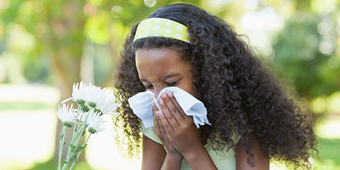Helping Teens Cope with COVID-19 Fallout

Find Your Perfect Match
Answer a few questions and we'll provide you with a list of primary care providers that best fit your needs.
Until recently, ‘going viral’ was a term that automatically caused the average young person to reference the most popular videos on their social media feeds.
Few may have ever suspected that in just weeks, this same phrase might conjure images of silent classrooms, empty gymnasiums, and a future devoid of caps, gowns, parties, and numerous other rites of spring.
As the world’s health, economic, and political leaders strive to understand and overcome the novel coronavirus, people of all ages are coping with new realities as routines are drastically altered to hold off deadly spread. These changes have touched every generation. As parents try to adjust to their own challenges, it becomes just as important for them to understand that their children are trying to process their own concerns.
Premier Health Now spoke with family medicine physician Michael Barrow, MD, with Premier Health Family Care - North to learn more about the best way to help communicate with teens and young adults as they grapple with such sweeping change.
Don’t Step on Wet Cement
“I think one of the things to remember with teenagers and early 20-somethings is that the frontal lobe of their brain is not fully developed yet,” says Dr. Barrow. “Their brains are still considered ‘wet cement,’ so they don't have the same decision making ability of someone in their 30s or 40s. It’s natural for them to have kind of a sense of invincibility, so it can be even more challenging for them to come to grips with what’s going on — or even to comprehend the importance of their responsibility to help protect those who are older.”
Though stress levels may differ from generation to generation, young adults are not immune to the fears, anxieties, and disappointments that come as they are faced with the possibility of a canceled athletic season, school year, graduation ceremony, or simple isolation from their classmates.
The Power Of Listening
“One of the very best things we can do is to simply spend time with our kids and, as we do that, listen to them,” says Dr. Barrow. “As a parent, you might be facing very real problems such as a job loss or mounting bills, but that doesn’t mean your teens’ problems are any less impactful or important. It’s crucial to let them talk and to listen to them without lecturing or trying to somehow minimize their stress by comparing it to your own.”
Dr. Barrow explains that even when a young person may not choose to fully verbalize their feelings, the time you spend with them may have a more positive influence than you realize. It may also be helpful to ask questions that encourage them to share more about what they are dealing with inside.
“It’s important to invite them to talk and to also be comfortable with silence as they try to think of an answer,” says Dr. Barrow. “Ask open-ended questions that might prompt something more than a grunt. For example, if they say, ‘I'm tired’ or ‘I’m not sleeping well,’ that gives you the opportunity to respond by saying something like, ‘Tell me more about that,’ or ‘Can you explain what you mean?’”
Though the future of COVID-19 may be unknown, the need to connect with and value the thoughts and emotions of the younger people in our own household becomes even more important with each passing day.
Find Your Perfect Match
Answer a few questions and we'll provide you with a list of primary care providers that best fit your needs.
Source: Michael Barrow, MD, Premier Health Family Care – North




